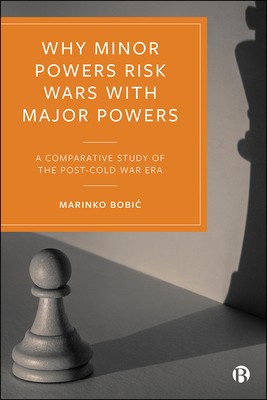
- We will send in 10–14 business days.
- Author: Marinko Bobic
- Publisher: Bristol University Press
- ISBN-10: 1529205204
- ISBN-13: 9781529205206
- Format: 16.3 x 23.6 x 2.3 cm, kieti viršeliai
- Language: English
- SAVE -10% with code: EXTRA
Reviews
Description
Through a range of case studies spanning the post-Cold War period in Iraq, Moldova and Serbia, this innovative book breaks new ground in its study of asymmetric conflicts where warring sides exhibit vast power differentials. It uses multiple theories to examine the different pathways that encourage minor powers to engage in both offensive and defensive wars that they are likely to lose, analysing domestic crisis as a key catalyst and considering ways to mitigate conditions that drive conflict. The author provides an important framework that can be applied to contemporary conflicts elsewhere.
EXTRA 10 % discount with code: EXTRA
The promotion ends in 21d.22:36:53
The discount code is valid when purchasing from 10 €. Discounts do not stack.
- Author: Marinko Bobic
- Publisher: Bristol University Press
- ISBN-10: 1529205204
- ISBN-13: 9781529205206
- Format: 16.3 x 23.6 x 2.3 cm, kieti viršeliai
- Language: English English
Through a range of case studies spanning the post-Cold War period in Iraq, Moldova and Serbia, this innovative book breaks new ground in its study of asymmetric conflicts where warring sides exhibit vast power differentials. It uses multiple theories to examine the different pathways that encourage minor powers to engage in both offensive and defensive wars that they are likely to lose, analysing domestic crisis as a key catalyst and considering ways to mitigate conditions that drive conflict. The author provides an important framework that can be applied to contemporary conflicts elsewhere.


Reviews